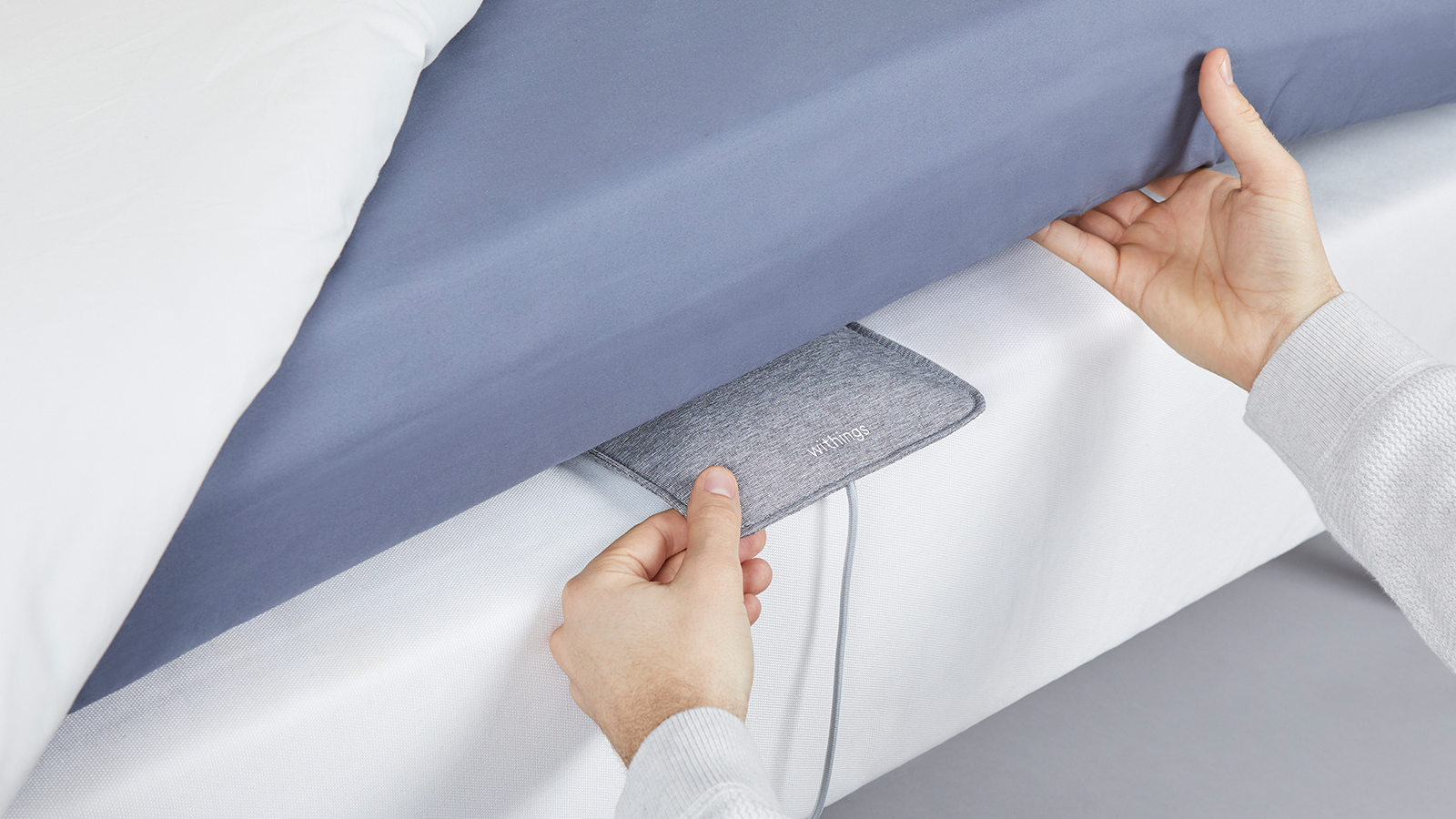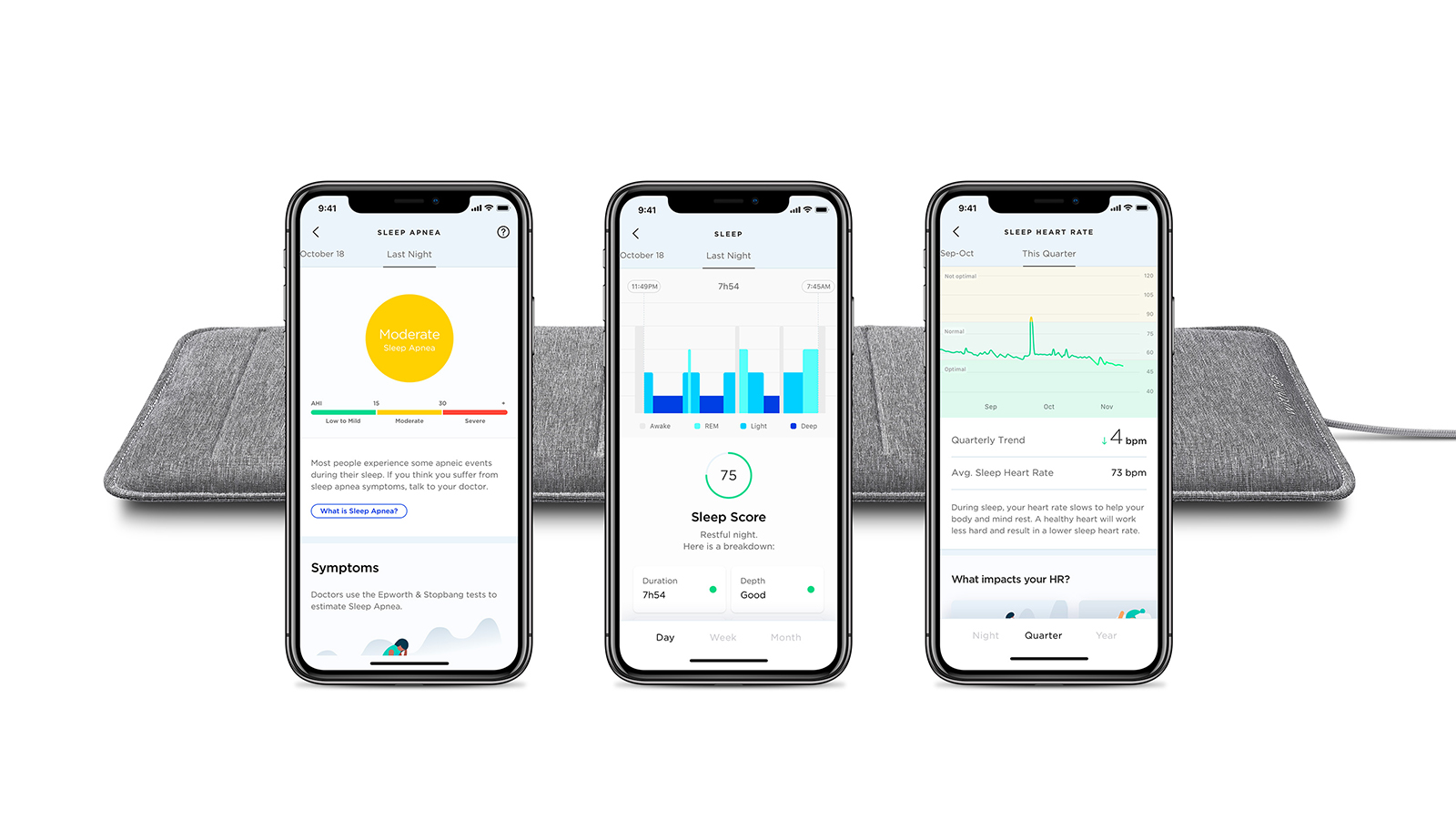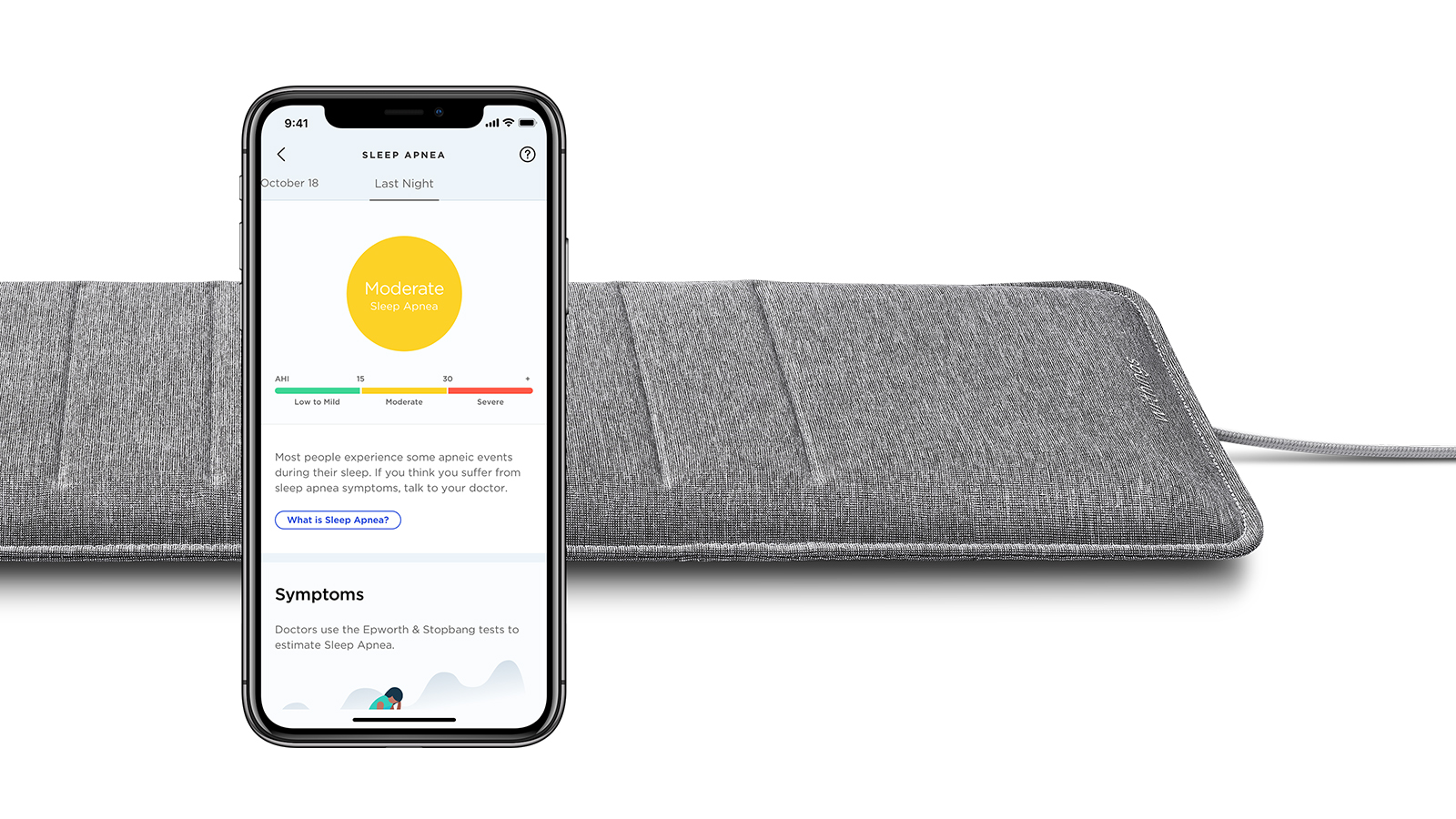Today, Withings has released the Sleep Analyzer, a sleep tracker capable of monitoring most aspects of sleep, and detecting sleep apnea, a serious medical condition where a person’s breathing stops and starts involuntarily during sleep. Withings has designed the Sleep Analyzer in collaboration with clinical sleep experts in France, and it now replaces the Withings Sleep as the brand’s default sleep tracker.
The Sleep Analyzer is a non-contact device that sits on top of your mattress at chest level and tracks how long you slept for, how much time you spent in each sleep cycle (deep, light, REM) – and how that affects your health – and whether there were any sleep disturbances. Many things can affect your sleep, from health conditions to noise pollution in your bedroom. In-bed comfort is another barrier, and if that resonates with you, consider investing in the best mattres online or one of the best pillows for your sleep style.
With the Sleep Analyzer, each morning you get a personalized Sleep Score based on your previous night’s sleep, plus insight into how you can sleep better. Results are recorded in the Withings Health Mate app (iOS, Android), and you can share data with your doctor or sleep specialist for review.
According to the American Sleep Apnea Association, sleep apnea is ‘an involuntary cessation of breathing that occurs while the patient is asleep.’ There are three types of sleep apnea: obstructive, central, and mixed, with obstructive sleep apnea (OSA) being the most common. 'OSA is caused by a blockage of your airway, usually when the soft tissue in the rear of the throat collapses and closes during sleep.'
Sleep apnea detection is a brand new feature, and Withings claims its device is the world’s first to offer sleep apnea tracking at home. The American Sleep Apnea Association states that, ‘Left untreated, sleep apnea can have serious and life-shortening consequences: high blood pressure, heart disease, stroke, automobile accidents caused by falling asleep at the wheel, diabetes, depression, and other ailments.’ We discuss sleep apnea more in our feature asking why is sleep important for humans.
The Withings Sleep Analyzer tracks snoring and thoracic activity, and uses heart activity tracking, to detect episodes of sleep apnea, plus the severity. Withings developed the Sleep Analyzer in collaboration with sleep experts at Hôpital Béclère in Paris, France, and says its sleep apnea detection capability compares highly to the results generated by long-standing medical sleep analysis.

Withings submitted the Sleep Analyzer for validation through a clinical study run in conjunction with Hôpital Antoine Béclère in France and Hôpital St-Pierre in Belgium. The study compared the Sleep Analyzer to Polysomnography (PSG), a form of medical sleep analysis performed on patients in sleep clinics. The aim of the study, which involved 118 patients, was to gauge the sleep tracker’s precision when performing diagnostic tests of sleep apnea to find moderate-severe cases.
The study found that the Sleep Analyzer had similar average Apnea-Hypopnea Index (measures the severity of sleep) results to PSG. The Sleep Analyzer’s average AHI was 32.5, compared to PSG’s 32.8.

How well are you really sleeping?
The Sleep Analyzer itself is a 25x7.5-inch mat that slips under your mattress. Withings says it’s a one-time setup affair, including pairing with the app. Once set up, the sleep tracker uses two sensors. The first is a sound sensor, which identifies snoring and cessation of breathing episodes. The second is a pneumatic sensor that measures respiratory rate, body movements across the mattress, and continuous heart rate, tracking your overall sleep duration, sleep disturbances (including noise), and how long you spent in each sleep cycle.
The tracker can also tell if you didn’t enter a specific sleep cycle to help you understand if you have any sleep issues you’re currently unaware of. For example, why you feel so tired each morning even though you think you’re getting enough quality sleep. For those of you who find it difficult to fall asleep within a reasonable timeframe, consider downloading one of the best meditation apps to help you get into a more relaxed state conducive to sleep.
Each morning you’ll be presented with a Sleep Score in-app, breaking down how well you slept. The score is based on sleep duration, sleep depth (and how often you’re getting such deep, replenishing sleep), and any sleep interruptions. Via the app you can view over-arching Sleep Score trends to see if there are any re-occurring patterns of when your sleep takes a nose-dive.
The Withings Sleep Score has been developed with sleep physicians and uses a specific weighting to reflect the importance of each ‘sleep item’ from a physiological point of view. The most important is sleep duration, which accounts for more than 50% of your Sleep Score, and the second most important parameter is sleep depth.
The Withings Sleep Analyzer will be available in the United States following FDA clearance. It launches in the UK today, costing £119.95 (approx $148). No word yet on US pricing, but we’ll let you know as soon as it’s available for purchasing.
If fancy the idea of sleep tracking, yet don't want to wait for the Sleep Analyzer to become available in America, many of the best fitness trackers and best smartwatch options also offer sleep tracking – see our top picks below, including a Withings smartwatch. Though it's important to note that the level of tracking will differ compared to the more dedicated sleep tracking offered by the Sleep Analyzer. Those wearables also need to be worn on your wrist, whereas the Withings device sits under your mattress for non-contact tracking.

